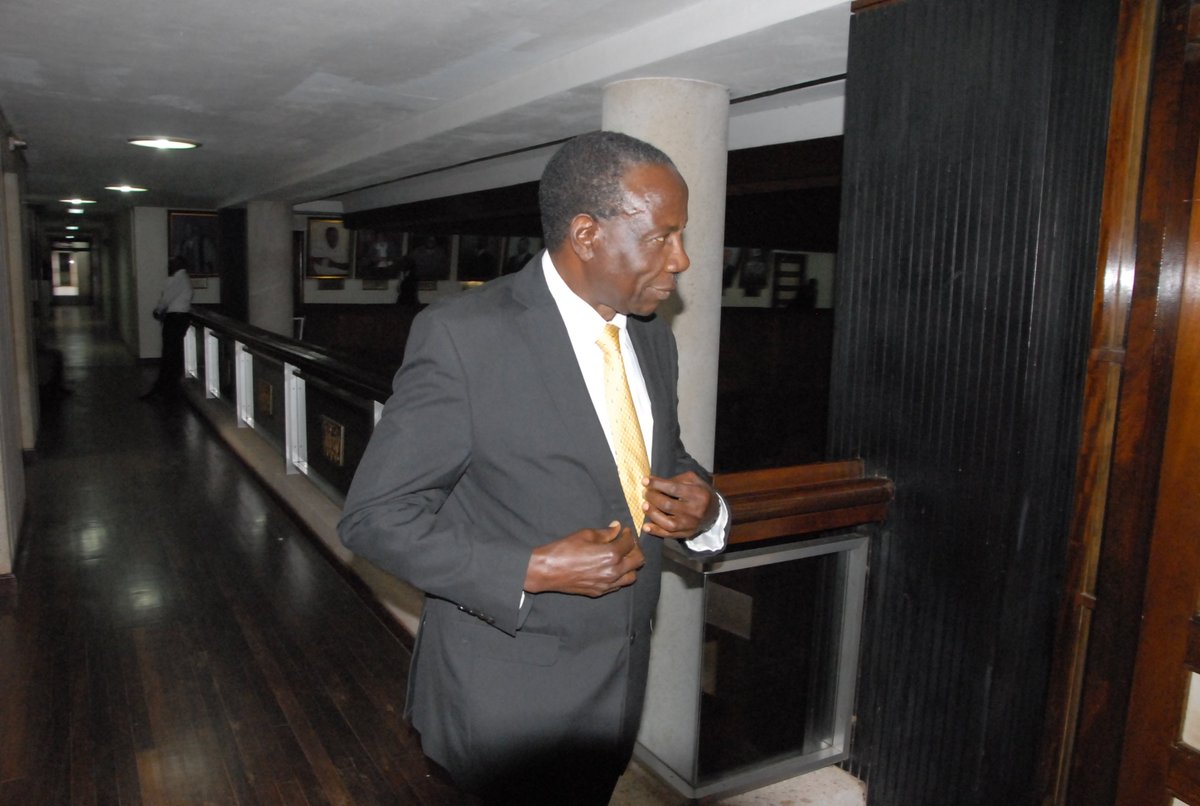
But it does not mean workers strike goes ahead in November. Here’s why
Kampala, Uganda | JULIUS BUSINGE | Another stalemate looms over the Pension Reform Bill, which was first tabled in parliament six years ago, as National Organisation of Trade Unions (NOTU) warns of a strike and the Minister of Finance says “No, that’s not how things are done”.
Fortunately for Finance Minister Matia Kasaija, he appears to hold an upper hand as this is not the first time NOTU is calling for strike action over the issue. Its strike call flopped in May and there is no guarantee that it will succeed this time.
But that has not stopped the NOTU Chairman, Usher Wilson Owere, from huffing and puffing about strike action if parliament starts debate on the Retirement Benefits Sector Liberalisation Bill, 2011 which is at committee stage.
“We have made our position clear; everything will come to a standstill on November 1 if the Bill is not withdrawn from Parliament,” Owere told The Independent in an interview, “The good thing is, the President is on our side.”
Owere and other NOTU officials have had frantic meetings with Ministry of Finance officials and even President Yoweri Museveni, in a bid to block the Bill. Their continued insistence on the November strike can only mean one thing; they have not got what they want. So what do they want?
First, Owere says, the Bill has major weaknesses which they shared with Museveni and he reportedly told them he has never been convinced by the anticipated benefits of pension sector liberalisation.
He said Museveni directed the Ministry of Finance to engage workers before continuing with the formulation process of the Bill. Owere said representatives of workers met the Minister of Finance and his deputies on July 3 in Kampala and both parties agreed that there were areas to correct in the Bill “but we are shocked to learn that they are not bothered.”
Workers MP, Sam Lyomoki also said he is surprised the law is being rushed through parliament.
“Whom are they pushing it for,” he said, “The most important thing of social security fund is not about growing the economy; it is to ensure social security for workers.”
In an interview with The Independent on Aug. 10, Lyomoki and Owere, said the Ministry of Finance has refused to withdraw the Bill as ‘directed’ by President Yoweri Museveni. They also accuse the Parliament Committee on Finance, which is handling the Bill, of refusing to consider their proposals.
But Finance Minister Matia Kasaija, the custodian of this Bill, in a telephone interview told The Independent on August 10 that they are aware of the workers concerns and said strikes are not the answer. He added that consultations are continuing, including with NOTU and others.
This is not the first time workers are threatening to strike over the same matter. Earlier this year, they had given the ministry of finance up to May 1 to have withdrawn the Bill from Parliament but the strike never happened and the Bill was never withdrawn.
Owere and Lyomoki said that their major concern relates to the Bill not providing for reforms that will guarantee the security of workers savings, give a better return on investment, and also shield it away from profit driven reforms. They say entrusting the private sector with such a vital function such as pensions will bring added weaknesses and risks since companies show poor corporate governance.
That is a veiled attack on the Ministry of Finance which Owere and Lyomoki allege is being pressured by individuals connected to law firms, fund managers and other firms eying the liberalisation process as a window of increasing their revenue at the expense of workers savings.
Finance officials have dismissed these as false claims but NOTU says instead of the Bill before parliament, the government could amend the NSSF Act to incorporate new reforms that are being proposed “since NSSF has been tested and would easily be monitored” unlike the proposed several new pension funds. Lyomoki said this is the line he has been pushing in a Private Members Bill to amend the NSSF Act to deal with the proposed reforms.
Lyomoki said that it does not make sense for Parliament to continue with the process when those being targeted – workers – are not contented with it.
The noise by Owere and Lyomoki has supporters of pension sector liberalisation worried. They fear that lack of one voice for all players could, once again, throw the process in limbo and deter essential competition, better returns on contributions to pension schemes, and growth of the economy.
 The Independent Uganda: You get the Truth we Pay the Price
The Independent Uganda: You get the Truth we Pay the Price




Liberalisation of retirement benefits is too risky here in Uganda where we still see companies collapsing without any recourse. We shuold not risk our savings to the extent of losing the principle contribution. At least we can do without interest